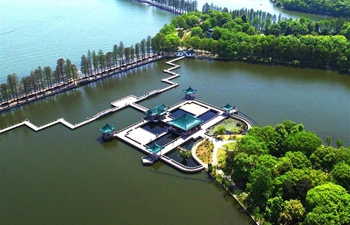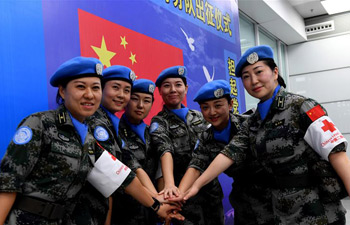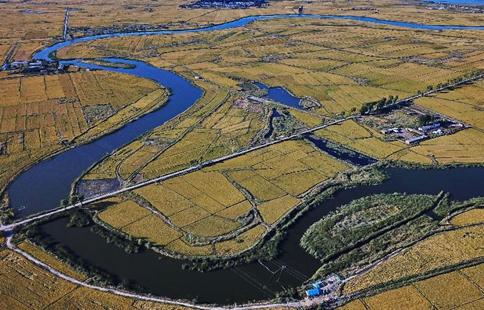by Xinhua writers Shi Xiaomeng, Zhong Ya
BEIJING, Sept. 22 (Xinhua) -- The recent provocative rhetoric between the United States and the Democratic People's Republic of Korea (DPRK) is jeopardizing the situation on the Korean Peninsula.
In a statement released on Friday, DPRK top leader Kim Jong Un responded to U.S. President Donald Trump's threat this week to "totally destroy" the DPRK, saying Trump "will face results beyond his expectation."
These threatening words are increasing tensions and worsening the already complex and grave situation on the Korean Peninsula, much to the dismay of the international community.
In September, the DPRK once again conducted nuclear and missile launch tests in obvious violation of UN Security Council resolutions, which have triggered a new round of sanctions against Pyongyang as well as military drills by South Korea and the United States in response.
In turn, the DPRK has continued its missile launches, first, in protest against the tougher sanctions. Second, as Pyongyang has claimed, its nuclear weapons development program is to protect itself from hostile U.S. policies.
It is not hard to tell that the situation has become a vicious circle where more missile tests trigger more sanctions, while more sanctions trigger more tests.
Actually, to resolve the Korean Peninsula nuclear issue, one significant principle that has been acknowledged is that the parties concerned need to respect each other's security concerns.
In this regard, China has proposed the "suspension for suspension" approach, where the DPRK suspends its nuclear and missile activities in exchange for a halt to large-scale military exercises between the United States and South Korea. This is a practical method to solve the Korean Peninsula issue and bring the parties back to the negotiating table.
After all, the ultimate goal is to achieve denuclearization and long-lasting peace on the Korean Peninsula through dialogue and negotiations, which is also the common will of the international community.
At this moment, the United States and the DPRK, two key actors in the denuclearization of the Korean Peninsula, should stay calm and exercise restraint, and avoid any provocative action or rhetoric that might further escalate tensions.
Political courage, wisdom and a responsible attitude are required to address the current crisis, instead of provocations or threats.

















